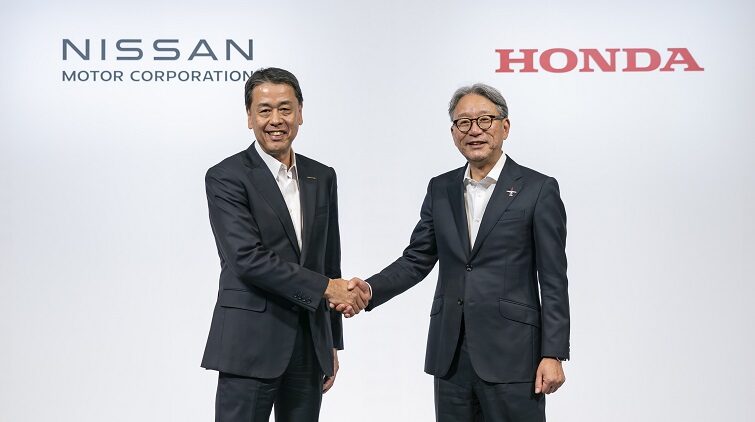Nissan Motor and Honda Motor have announced a new agreement to jointly research fundamental technologies for next-generation software-defined vehicles (SDVs). This collaboration builds on a previous memorandum of understanding (MoU) signed on March 15, which set the stage for a strategic partnership focused on intelligence and electrification.
The latest MoU aims to strengthen the partnership by defining specific areas of cooperation to advance toward a carbon-neutral and traffic-accident-free society. The joint research will address key areas including autonomous driving, connectivity and artificial intelligence (AI), leveraging the combined technological expertise and resources of both companies.
For battery technology, Nissan and Honda plan to collaborate on various issues from short-term to long-term perspectives. This includes sharing specifications and exploring mutual supply arrangements to enhance battery options and reduce costs through joint investment. The companies are working toward standardizing battery cell modules for EVs and considering the supply of lithium-ion batteries from a joint venture, L-H Battery Company, Inc, to Nissan in North America after 2028.
The collaboration will also extend to e-axles, with both companies agreeing to standardize their specifications for next-generation EVs. The initial focus will be on sharing core components such as motors and inverters.
Additionally, Nissan and Honda say they have reached a preliminary agreement on model and regional complementations for their vehicles and are developing a joint product review system. This cooperation will encompass internal combustion engine (ICE) and electric vehicle (EV) models.
In Japan, the two companies are investigating potential collaborations in energy services and resource circulation, including charging infrastructure and energy solutions using batteries.
Nissan and Honda say they aim to complete their foundational research on the SDV platform within approximately one year and will consider mass-production development based on their findings.


